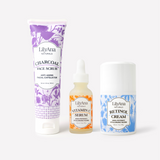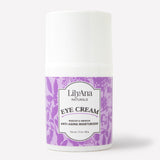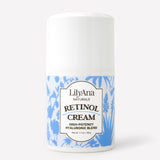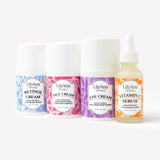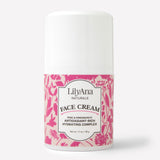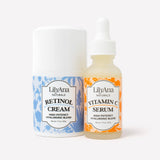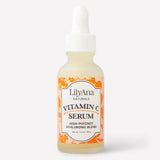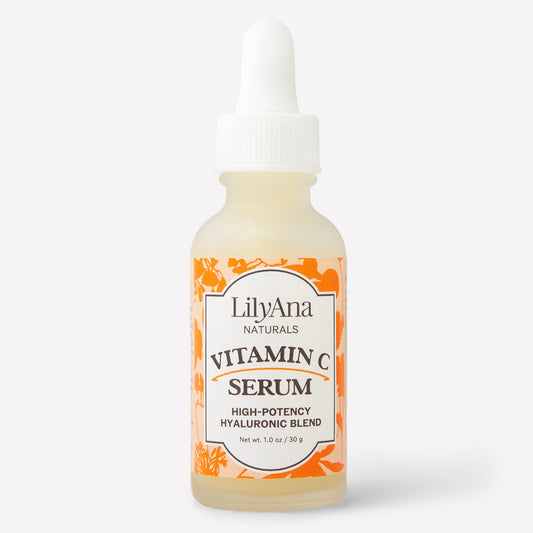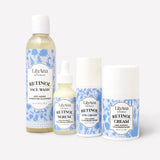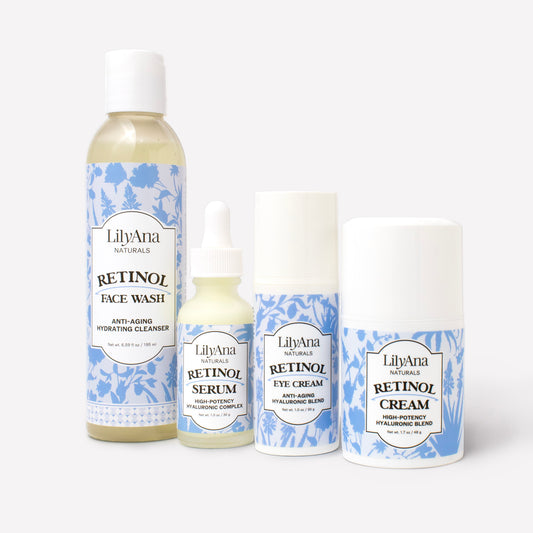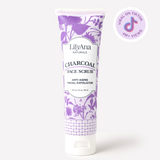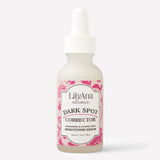Achieving Smooth and Radiant Skin: A Comprehensive Guide
Achieving smooth and radiant skin is a common goal for many individuals. In the quest for flawless skin, improving skin texture plays a crucial role. By incorporating proven techniques and products into your skincare routine, you can effectively enhance the overall look and feel of your skin. From exfoliation methods to targeted treatments, there are various strategies that can help you achieve a smoother complexion. This comprehensive guide will explore the best practices and products to improve skin texture, providing you with valuable insights and recommendations to elevate your skincare regimen. Whether you're dealing with rough patches, uneven tone, or visible pores, these proven techniques will help you address your skin concerns and achieve a more refined texture. Get ready to unlock the secrets to smoother skin and discover the transformative power of incorporating the right techniques and products into your daily skincare routine.
Effective Techniques and Products for Improving Skin Texture
Based on the provided information, effective techniques and products for improving skin texture include the use of physical or chemical exfoliators to remove dead cells and brighten the complexion. Ingredients like lactic acid, retinol, and vitamin C are recommended for addressing uneven skin texture, acne, fine lines, and wrinkles. Products from LilyAna Naturals, such as the Retinol Serum and the Power Couple (Retinol Cream and Vitamin C Serum), are highlighted for their ability to promote collagen production, reduce fine lines, and improve skin elasticity. Additionally, laser skin resurfacing and dermabrasion are mentioned as procedures that can help improve skin tone, texture, and address fine lines and wrinkles. As skin ages, the breakdown of collagen and elastin fibers can lead to uneven texture, which can be addressed through treatments like chemical peels, microneedling, and radiofrequency therapy.
Utilizing Chemical Exfoliants
Utilizing chemical exfoliants: lactic acid, glycolic acid, and salicylic acid. Chemical exfoliants like lactic acid, glycolic acid, and salicylic acid play a crucial role in improving skin texture by removing dead cells, unclogging pores, and boosting collagen production. Lactic acid, known for its ability to soften rough skin, is ideal for dry and sensitive skin types. Glycolic acid and salicylic acid also help in smoothing textured skin caused by acne, congested skin, or fine lines. These exfoliating acids stimulate cell turnover, reduce the appearance of fine lines and wrinkles, and promote smoother skin. Additionally, vitamin C, a potent antioxidant, aids in improving skin texture, brightening the skin, and fading dark spots. When choosing chemical exfoliants, products containing these ingredients can help address uneven skin texture effectively.
Harnessing the Benefits of Retinol and Retinoids
Harnessing the benefits of retinol and retinoids for skin concerns involves utilizing these vitamin A derivatives to stimulate cell turnover, collagen production, and reduce the appearance of fine lines, wrinkles, and uneven skin texture. Retinol and retinoids can help smooth textured skin caused by acne, congested skin, or fine lines. Additionally, chemical exfoliants like glycolic acid, lactic acid, and salicylic acid can improve skin texture by removing dead skin cells, unclogging pores, and boosting collagen production. Vitamin C, known for its antioxidant properties, can also aid in improving skin texture and brightening the skin. Products like the Retinol Serum and the Power Couple from LilyAna Naturals offer effective solutions for addressing skin texture issues and promoting healthier skin.
Enhancing Skin Texture with Vitamin C Serums
Enhancing skin texture with Vitamin C serums and their collagen-boosting properties can be achieved through a combination of ingredients and products that target various skin concerns. Vitamin C serums are known for their collagen-boosting properties and ability to improve skin texture by brightening the complexion and reducing the appearance of fine lines and wrinkles. Additionally, ingredients like lactic acid, retinol, and other exfoliating acids play a crucial role in smoothing textured skin, stimulating collagen production, and promoting cell turnover. These ingredients help in addressing uneven skin texture, rough patches, enlarged pores, and other skin imperfections. By incorporating products like Vitamin C serums, retinol creams, and chemical exfoliants into a skincare routine, individuals can effectively enhance their skin texture and achieve a smoother, more radiant complexion.
Exploring Advanced Treatments
When exploring advanced treatments like microneedling and laser skin resurfacing for texture improvement, it is essential to consider various factors. Microneedling involves using tiny needles to puncture the skin, stimulating collagen production and improving skin texture. On the other hand, laser skin resurfacing uses concentrated light beams to address skin tone, texture, and fine lines by encouraging collagen production. These treatments can be effective in combating uneven skin texture caused by factors like aging, acne, or environmental damage. Additionally, chemical exfoliants containing ingredients like lactic acid, retinol, and vitamin C can further enhance skin texture by promoting cell turnover, collagen production, and skin brightening. By combining these treatments and products, individuals can achieve smoother, more even-textured skin.
Lifestyle Changes to Enhance Skin Texture
Skin texture types are categorized by the issues that cause the texture, such as congested pores, large pores, acne-prone skin, rough-to-the-touch bumps, flaky skin, and wrinkles. Various factors like aging, lack of hydration, and skin conditions can contribute to uneven skin texture. To improve skin texture, dermatologists recommend using exfoliators to remove dead cells, hydrating the skin, and addressing specific skin concerns like acne scars. Additionally, incorporating skin-friendly superfoods and staying hydrated can also positively impact skin texture. Products enriched with ingredients like vitamin C can brighten the complexion and protect against environmental stressors. Dermabrasion and laser skin resurfacing are advanced treatments that can help improve skin texture by promoting cell regeneration and collagen production. Retinol and retinoids are also effective in smoothing textured skin by stimulating cell turnover and collagen production.
Emphasizing hydration and incorporating skin-friendly superfoods
Emphasizing hydration and incorporating skin-friendly superfoods is crucial for improving skin texture. Skin texture issues can range from congested pores to rough, flaky skin and wrinkles. To combat uneven skin texture, exfoliation is key as it helps remove dead cells and brighten the complexion. Additionally, maintaining skin hydration levels is essential to prevent dryness and rough texture. Incorporating skin-friendly superfoods and drinking plenty of water can further enhance skin hydration. Furthermore, using products enriched with ingredients like vitamin C can help improve skin texture by brightening dull complexions, reducing wrinkles, and protecting against environmental damage. Consulting with a dermatologist for tailored treatments and considering procedures like dermabrasion or laser skin resurfacing can also aid in achieving smoother skin.
Tips for addressing uneven skin texture on face and body
To address uneven skin texture on the face and body, it is essential to understand the various factors that contribute to this issue. Skin texture can be affected by congested pores, large pores, acne-prone skin, rough-to-the-touch bumps, flaky skin, and wrinkles. Factors like aging, lack of hydration, and the buildup of dead skin cells can also impact skin texture. Dermatologists recommend using products with ingredients like exfoliators, retinol, and vitamin C to improve skin texture. Additionally, maintaining a healthy diet rich in skin-friendly superfoods and staying hydrated can also help enhance skin texture. Treatments such as dermabrasion and laser skin resurfacing can be effective for more severe cases. By addressing these factors and incorporating suitable skincare products and treatments, individuals can work towards achieving smoother and more even skin texture on both the face and body.
Dealing with acne scars and age-related skin changes through tailored treatments
Dealing with acne scars and age-related skin changes through tailored treatments involves understanding the various factors that contribute to uneven skin texture. Skin texture issues can range from congested pores to wrinkles, and addressing them requires a combination of exfoliation, hydration, and targeted treatments. To improve skin texture, dermatologists recommend using products that promote cell turnover, collagen production, and hydration. Additionally, treatments like dermabrasion and laser skin resurfacing can help address more severe texture concerns. It's crucial to consult with a dermatology provider to create a personalized treatment plan that targets acne scars and age-related skin changes effectively. Incorporating skin-friendly superfoods and staying hydrated also play a significant role in enhancing skin texture. Furthermore, products enriched with ingredients like retinol and vitamin C can further aid in smoothing textured skin and improving overall skin appearance.
Achieving smoother and clearer skin texture is within reach with the right techniques and products. By incorporating retinol skincare products from LilyAna Naturals, you can boost natural cell promotion, erase signs of aging, and improve overall skin texture. The lightweight and nourishing formulas, combined with natural ingredients and the power of retinol, make these products a standout choice for those looking to rejuvenate their skin. To explore the range of retinol products offered by LilyAna Naturals and start your journey to healthier skin, visit lilyananaturals.com.
